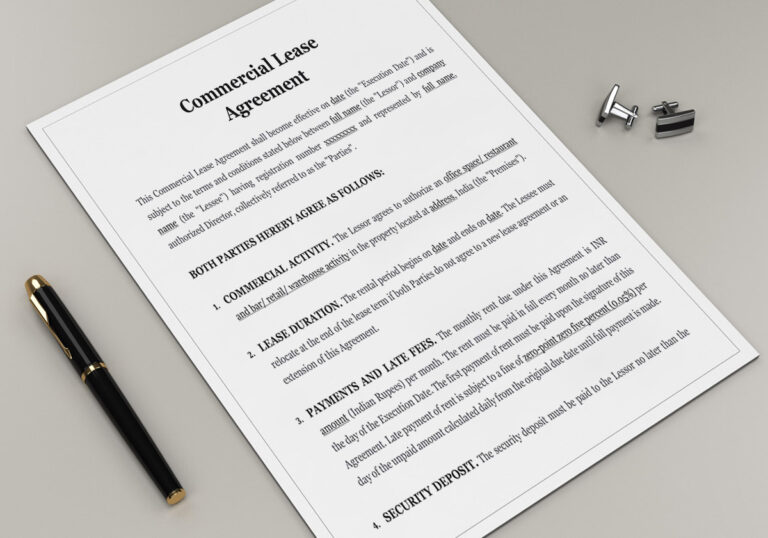Understanding Office Lease Contracts in Vietnam | Maison Office
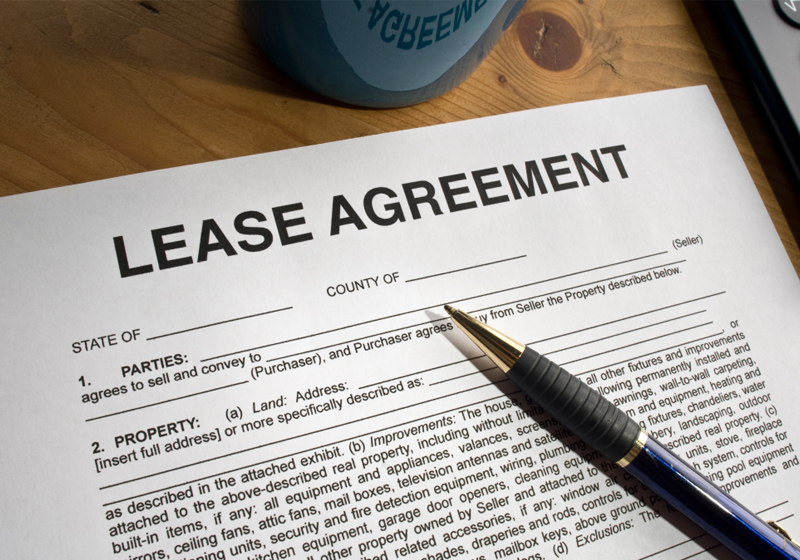
An office lease agreement Vietnam is a legally binding contract that governs the relationship between the landlord and the tenant. This document sets forth the terms and conditions, including lease duration, rental fees, rights and obligations of both parties, and compliance with Vietnamese laws and regulations. For both foreign and domestic enterprises, a well-structured lease agreement is fundamental to ensuring a stable and legally compliant business operation in Vietnam.
 |
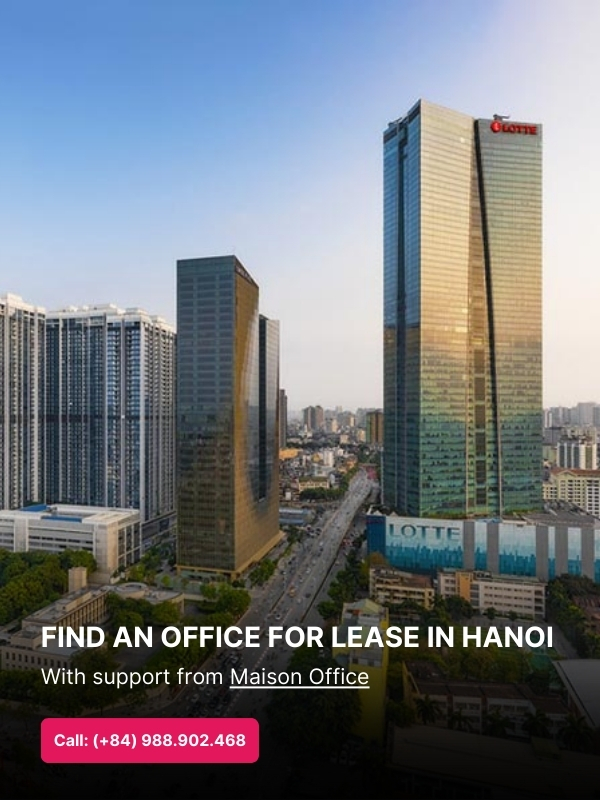 |
Table of Contents
1. What is an Office Lease Agreement in Vietnam?
An office lease agreement, also known as a commercial lease contract, is a legal contract between a property owner (lessor) and a business (lessee) that grants the right to use office space for a specified period in exchange for rent. It specifies key elements such as the lease duration, rental amount, payment schedule, and responsibilities of each party regarding maintenance, taxes, and other obligations.

In Vietnam, such agreements must comply with the Civil Code Law 2015, the Law on Real Estate Business, the Law on Housing, and relevant investment and enterprise laws. Adhering to these legal frameworks ensures the contract’s validity and also protects the rights and obligations of both parties involved.
2. Key Clauses to Include in an Office Lease Contract in Vietnam
Understanding which terms are crucial under Vietnamese law is essential to establishing a secure and compliant leasing agreement. These key clauses define the scope of the agreement, assign responsibilities, and help minimize disputes during the lease term. Below are the fundamental clauses that should be included in any standard office lease agreement Vietnam:
2.1 Lease Duration and Renewal Conditions
This clause is one of the most critical components of an office lease contract. It specifies the length of the agreement, indicating the start and end dates of the leasing period. It is essential to clearly define the initial lease term to ensure both parties are aligned on the duration of the contract. Typically, office leases in Vietnam range from 1 to 3 years depending on the needs of the tenant.
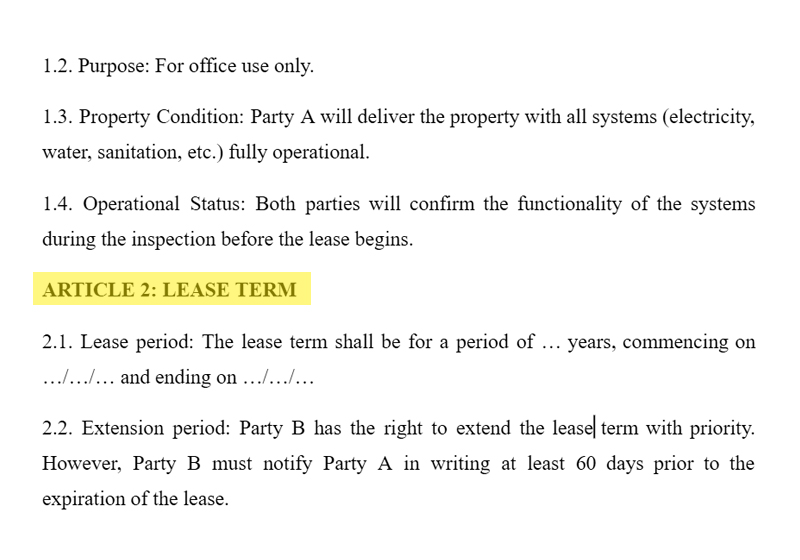
In addition to the lease duration, the renewal conditions should be clearly defined. This includes the process for renewing the lease at the end of the initial term (e.g., 1 to 2 months before expiration). The clause should also specify any changes in the rent amount for the renewed period, which could be based on market trends, inflation, or a fixed percentage increase agreed upon in advance.
2.2 Payment and Deposit Terms
This clause outlines the financial commitments of the tenant, including the rental amount, payment schedule, and security deposit requirements. In Vietnam, office leases require monthly or quarterly rent payments. The due date should be clearly stated (e.g., by the 5th of each month) to avoid payment delays.
Additionally, the security deposit – typically equal to 1 to 2 months’ rent – serves as collateral against potential damages or breaches of contract. The contract should specify the deposit amount, payment timeline (usually upon contract signing), and conditions for its return at the end of the lease term.
Furthermore, this clause should address any penalties for late payments, including interest rates or fixed fines. Clearly defined payment and deposit terms help minimize disputes and ensure transparency in the financial aspects of the lease.
2.3 Responsibilities of the Tenant and Landlord
This clause clarifies the obligations of both parties to maintain the property and ensure a seamless leasing relationship. It should include:
Tenant’s Responsibilities:
– Maintaining the leased premises in good condition, including regular cleaning and addressing minor repairs.
– Using the property for its intended commercial purpose, ensuring no illegal activities are conducted on the premises.
– Complying with building regulations and obtaining necessary permits for business operations.
– Paying for utilities (e.g., electricity, water, internet) and service charges (e.g., cleaning, security) as outlined in the lease agreement.
– Notifying the landlord promptly of any damage or necessary repairs.

Landlord’s Responsibilities:
– Ensuring the office space is handed over in usable condition, with all essential systems fully operational.
– Taking responsibility for major structural repairs and maintenance, unless the damage results from tenant misuse.
– Providing all services specified in the lease, such as property management, parking, and security.
– Ensuring the premises comply with all applicable legal standards, including fire safety and construction codes.
– Supporting the tenant in resolving administrative or legal procedures if necessary.
Clear assignment of responsibilities helps minimize conflicts, protects both parties’ interests, and supports stable day-to-day operations in the leased space.
2.4 Termination and Penalty Clause
The termination and penalty clause in an office lease agreement Vietnam defines the conditions under which the lease can be terminated and the consequences of non-compliance. Common bases for early termination include serious breaches of contract, persistent failure to pay rent, violations of building regulations, or force majeure events. This clause should clearly define the notice period required (e.g., 30 to 90 days).

In addition, this clause must outline the financial consequences of early termination, such as penalty fees or compensation to the other party. For example, if the tenant terminates the lease without valid cause, they may lose their deposit or have to pay part of the remaining rent. Likewise, if the landlord ends the contract without justification, they may be required to compensate for business disruption.
>> Office Space Lease Agreement Template in VietNam
3. Checklist Before Signing an Office Lease Agreement
Before finalizing an office lease contract in Vietnam, it is essential to conduct thorough checks to ensure that the property aligns with your business needs and complies with all relevant legal requirements. Below are key points to consider:
3.1 Due Diligence on Property and Landlord
Before signing an office lease agreement, it is vital to conduct due diligence on both the property and the landlord to ensure legitimacy and avoid any potential risks. This includes:
– Verifying Ownership and Legal Authority: Confirm that the landlord is the rightful owner of the property and has the legal right to lease it.
– Checking Landlord’s Reputation and Reliability: Investigate the landlord’s reputation, including past business dealings and reviews from other tenants.
– Assessing Financial Stability: Evaluate the financial stability of the landlord to ensure they can meet their obligations, such as maintenance and repairs.
– Inspecting Property Condition: Assess the overall condition of the property, including its structural integrity, facilities, and available amenities.

3.2 Verification of Legal Use (Office Function)
To ensure regulatory compliance and avoid future legal complications, tenants must first confirm that the leased property is legally permitted for office use. First, verify that the office building is located in a zone designated for commercial or office activities according to local regulations. Because leasing a property in a residential or restricted zone could lead to fines or forced relocation.
Second, verify that the building holds all necessary permits and approvals, such as fire safety certificates, building ownership documents, business operation licenses. These documents demonstrate that the property is legally authorized for office use and complies with safety and regulatory standards.
Finally, it is important to examine the lease agreement for any limitations on business activities that may affect operations. These limitations could include restrictions on operating hours or the types of services allowed within the premises.
3.3 Site Inspection and Technical Assessments
To avoid unexpected issues after moving in, tenants should carry out a detailed site inspection and technical assessment before signing the lease contract. This step ensures the office space is in good condition, fully functional, and aligned with operational requirements.
During the inspection, assess the overall physical condition of the premises, including flooring, walls, ceilings, and any visible structural components. Ensure there are no signs of water damage, leaks, or major wear and tear that could require costly repairs.
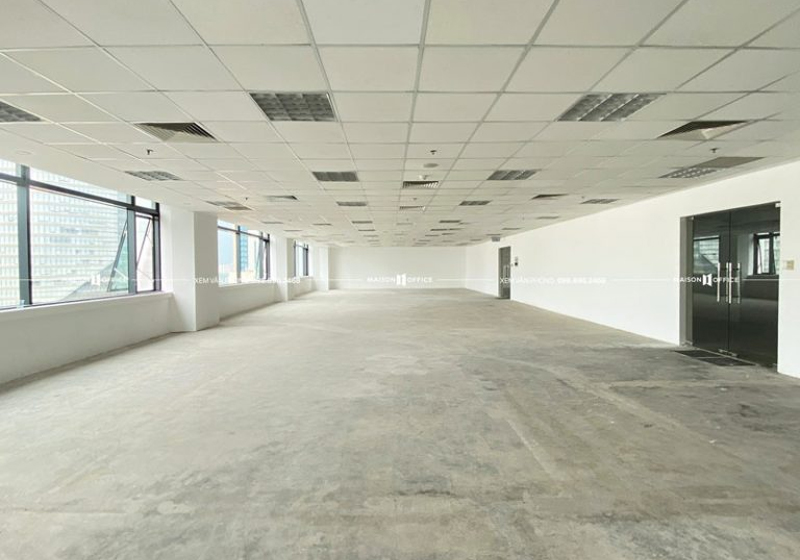
Next, test all essential systems such as electricity, lighting, air conditioning, elevators, and internet connectivity to confirm they are fully operational. Additionally, assess fire safety features to confirm compliance with the Law on Fire Prevention and Fighting.
4. Sample Office Lease Agreement in Vietnam (Free Template)
Below is a professional English-language office lease agreement template for your reference, designed to ensure clarity, legal compliance, and protection for both tenants and landlords in Vietnam.
Both parties agree to enter into this office lease agreement under the following terms and conditions:
SOCIALIST REPUBLIC OF VIETNAM
Independence – Freedom – Happiness
OFFICE LEASE AGREEMENT
No.: ………………………………..
Date: ………………………………
Today, on ………………, we consist of:
PARTY A (LESSOR):
Representative: ……………………………… – Position: …………………
Business License No.: ………………… issued by …………………
Address: ………………………………………………………………………
Phone: …………………… Email: …………………………………………..
Tax Code: ……………………
PARTY B (LESSEE):
Representative: ……………………………… – Position: …………………
Business License No.: ………………… issued by …………………
Address: ………………………………………………………………………
Phone: …………………… Email: ……………………
Tax Code: ……………………
Both parties agree to enter into this office lease agreement under the following terms and conditions:
ARTICLE 1: PROPERTY DETAILS
Party B agrees to lease the following space from Party A:
1.1. Leased Space: Party B leases a total area of 200m2 (two hundred square meters) located at …… Hai Ba Trung Street, District 1, Ho Chi Minh City.
1.2. Purpose: For office use only.
1.3. Property Condition: Party A will deliver the property with all systems (electricity, water, sanitation, etc.) fully operational.
1.4. Operational Status: Both parties will confirm the functionality of the systems during the inspection before the lease begins.
ARTICLE 2: LEASE TERM
2.1. Lease period: The lease term shall be for a period of … years, commencing on …/…/… and ending on …/…/…
2.2. Extension period: Party B has the right to extend the lease term with priority. However, Party B must notify Party A in writing at least 60 days prior to the expiration of the lease.
ARTICLE 3: RENT AND ADDITIONAL COSTS
3.1. Rental Fee:
– The rent for the leased property is agreed upon as ……… VND per month. This amount is inclusive of VAT but excludes utilities and other additional costs.
– The rental fee as specified in this agreement will not change throughout the lease period.
3.2. Additional Costs:
– Utilities: Party B is responsible for paying the costs of electricity, water, internet, and any other utilities used during the lease term, based on actual consumption.
– Maintenance Costs: Party B will bear the cost of routine maintenance and repairs to the leased property during the lease term, excluding structural repairs which will be covered by Party A.
– Other Charges: Any additional services, such as cleaning, security, or parking, will incur separate charges as agreed by both parties.
ARTICLE 4: PAYMENT TERMS
4.1. Currency for Calculation: The rent and all associated payments will be calculated and paid in Vietnamese Dong (VND).
4.2. Payment Time:
– Party B is required to pay the rent on a quarterly basis, with payments due in advance within 5 working days from the start of each quarter.
– The first payment is due within 5 working days of signing this contract.
4.3. Security Deposit:
– Party B shall pay a security deposit equivalent to 2 months’ rent within 5 working days after signing the contract. This deposit will be held by Party A to cover any potential damages or unpaid fees.
– The deposit will be refunded to Party B at the end of the lease term, after deducting any outstanding costs for damages, utilities, or other charges.
4.4. Payment Method:
All payments will be made by bank transfer, cheque, or in cash as agreed upon by both parties. Party B will bear any transaction fees related to the payment process. Payment should be made to the following account details:
– Beneficiary: … Company
– Bank Name: Bank for Foreign Trade of Vietnam
– Bank Account Number: 1025236XXXX
4.5. Late Payment Penalty:
– If Party B fails to make any payment by the due date, Party B will incur a penalty of 0.1% per day on the overdue amount.
– In the event that the payment remains unpaid for more than 30 days, Party A has the right to terminate the lease agreement and take legal action if necessary.
ARTICLE 5: RESPONSIBILITIES OF BOTH PARTIES
5.1. Responsibilities of Party A:
– Party A guarantees that they have full legal ownership of the property and the right to lease it to Party B.
– Party A will ensure that the leased space is delivered to Party B with all basic facilities and systems, including electricity, water, and sanitation, functioning properly and in good condition.
– Party A guarantees that Party B will have the legal right to use the leased area independently and privately throughout the lease term.
– In the event of structural damage to the property due to natural causes, Party A will be responsible for repairing the property at no additional cost to Party B.
– Party A will ensure that Party B’s legal rights are protected and will assist in complying with all applicable Vietnamese laws and regulations during the lease period.
5.2. Responsibilities of Party B:
– Party B is responsible for paying the rent, security deposit, and any other additional costs as outlined in the lease agreement, and ensuring all payments are made on time.
– Party B agrees to use the leased space exclusively for the intended office purposes and in accordance with the terms of the lease.
– If Party B requires any repairs or alterations to the leased space to meet their specific needs, they must obtain written consent from Party A. All costs for such repairs or alterations will be borne by Party B.
– Party B is prohibited from subleasing or transferring the leased space to third parties without obtaining prior written consent from Party A.
– Upon termination of the lease, Party B is responsible for returning the property in the same condition it was received, except for normal wear and tear.
– Party B will be held responsible for any damages caused to the leased property, facilities, or furniture during their use and will be required to cover the cost of repairs or replacements.
ARTICLE 6: MAINTENANCE AND REPAIRS
6.1. Party A is responsible for the maintenance and repair of the property’s structural components, including walls, ceilings, and foundation, unless the damage is caused by Party B’s negligence.
6.2. Party B is responsible for the maintenance and repair of non-structural elements such as light fixtures, furniture, and internal fittings.
6.3. In case repairs or maintenance work is required, Party B must notify Party A promptly. Party A will then arrange for necessary repairs within a reasonable timeframe.
6.4. Any alterations or improvements to the property made by Party B must be approved by Party A in writing.
ARTICLE 7: TERMINATION OF THE CONTRACT
7.1. This contract will terminate in the following cases:
– Upon expiration of the contract as outlined in Article 2.
– In case of force majeure: natural disasters, war, fire,… or due to city planning regulations.
– If Party B is unable to continue operations due to government orders.
In these cases, Party A will reimburse Party B the security deposit.
7.2. Consequences of unilateral termination without compliance:
– If Party B terminates the contract without complying with the conditions, the security deposit will be forfeited.
– If Party A terminates the contract without complying with the conditions, Party A will refund Party B the security deposit and any remaining rental fees, and compensate Party B an amount equivalent to the security deposit.
ARTICLE 8: DISPUTE RESOLUTION
8.1. Any disputes arising from or related to this contract shall first be resolved through amicable negotiation between both parties.
8.2. If no agreement is reached within 30 days, either party may refer the matter to the competent court in Vietnam for resolution. If no agreement is reached within 30 days, either party may refer the matter to the competent court in Vietnam for resolution.
ARTICLE 9: GENERAL COMMITMENT
9.1. Both parties agree to fully comply with all terms and conditions set forth in this contract. Any amendments, supplements, or cancellations must be mutually agreed upon in writing and formally documented as an annex to this contract.
9.2. This agreement is legally valid from the signing date until the expiration of the lease term. It is made in 02 (two) copies in English, each of equal validity. Each party will retain 01 (one) copy.
|
FOR THE LESSOR (Signature and Seal) |
FOR THE LESSEE (Signature and Seal) |
5. Common Mistakes in Office Lease Contracts (and How to Avoid Them)
An office lease agreement Vietnam is a mandatory legal document to conduct business activities in this market. However, many tenants make mistakes that can lead to unexpected costs or legal disputes. Below are 3 of the most common mistakes and how to avoid them:
5.1 Misunderstanding area calculation
One of the most common errors is misunderstanding of how the leasable area is calculated, which can lead to overpaying or disputes over space. In Vietnam, the total area of an office space can be calculated in different ways, such as using the “net area” or the “gross area”. To avoid confusion, make sure the lease agreement clearly defines the method of area calculation and specifies whether the rent is based on the net or gross area.
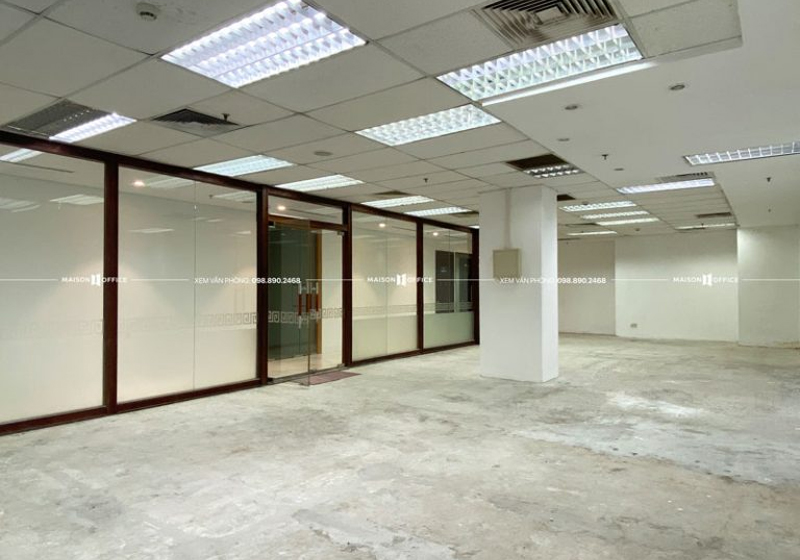
5.2 Ignoring early termination clauses
Many tenants often ignore early termination terms, thinking they can exit the lease anytime. In reality, most office lease contracts in Vietnam require advance notice (usually 60 days) and may impose penalties like losing the deposit. So it’s important to review these terms carefully and negotiate clearer termination conditions before signing.
5.3 Overlooking service charges and escalation terms
Tenants focus solely on the base rent and overlook service charges or rent escalation terms. These additional costs – such as maintenance fees, building management, or annual rent increases – can significantly impact the total lease expense. So always request a detailed breakdown and clarify how and when adjustments will be applied.
In conclusion, entering an office lease agreement Vietnam requires careful attention to detail. Tenants should not only focus on rental rates but also review key terms such as usable area, termination clauses, and service-related costs. A thorough understanding of the contract will help businesses to avoid disputes and ensure an effective operation.




